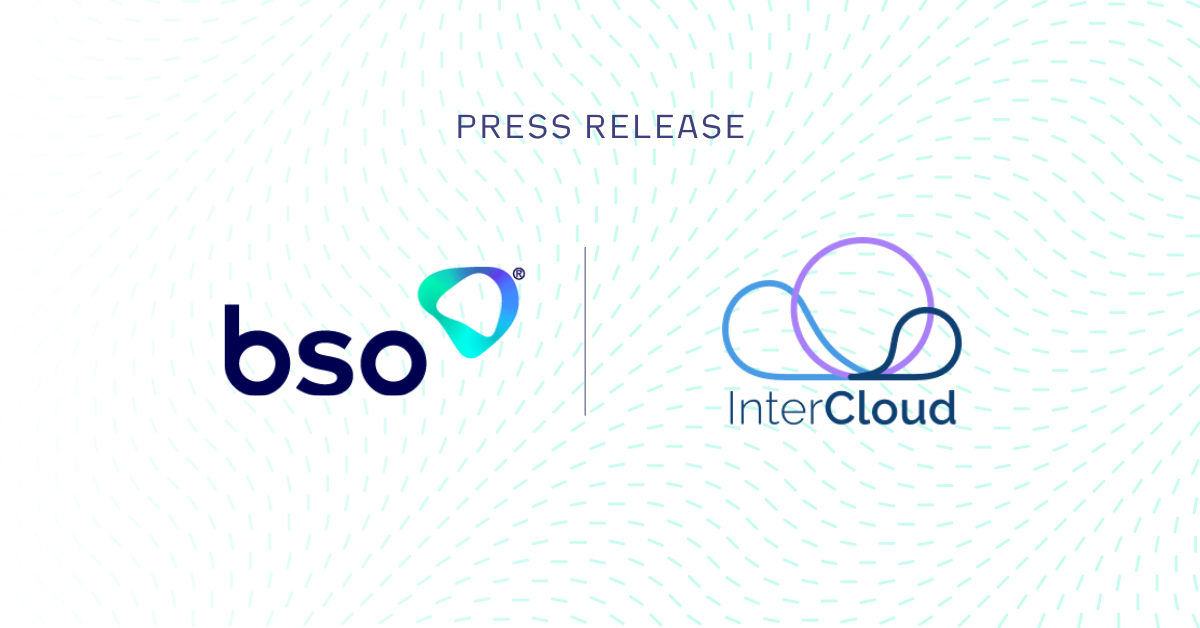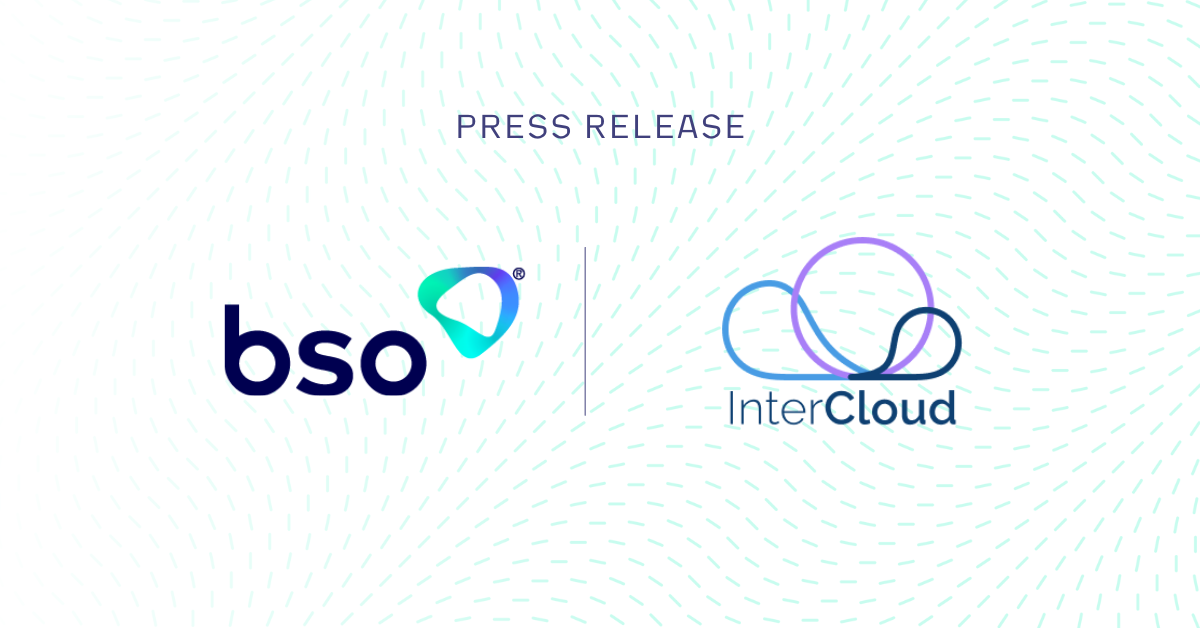
As we have already explained in our Cloud Computing Glossary, the cloud’s flexibility means businesses can take advantage of different service models and types of cloud environments, including infrastructure as a service (IaaS), platform as a service (PaaS) and software as a service (SaaS).
These are delivered through private, public, hybrid or multi cloud by cloud providers.
At BSO we offer different cloud solutions that are designed to support our clients’ dynamic workloads and mission-critical applications. Companies can mix and match cloud service models depending on their business objectives, so let’s have a look at what each one offers:
Infrastructure-as-a Service (IaaS)
IaaS is a type of cloud computing that provides virtualised compute, networking and storage resources to subscribing enterprises. This allows them to scale up and down their access to infrastructure components as needed.
The key advantage of IaaS is that it eliminates the need for investment in hardware and lowers the costs associated with IT maintenance. Enterprises can access high spec, highly available operating systems, servers, storage and other components on demand, helping them to manage workloads more quickly, flexibly and efficiently.
As well as delivering compute resources, IaaS providers offer additional services which can include monitoring, auto scaling and load balancing, security, and backup.
When it comes to networking, in the cloud this is software-defined, which means that hardware such as routers and switches become available through APIs.
Customers can choose to access their IaaS resources as a single tenant, which means that the systems they use are exclusive only to them; or as a multi-tenant, through which several organisations will share resources, although their specific systems are kept separate.
Typical use cases for IaaS – Companies of all sizes that want to lower their investments in physical hardware and systems; organisations that are growing quickly and need to take advantage of the scalability of IaaS.
Platform-as-a-Service (PaaS)
Companies involved in application development can access everything they need, from tools and infrastructure through to operating systems, using a PaaS model.
Like IaaS, PaaS is available on a subscription basis over the internet, and as well as compute resources it also offers middleware, business intelligence services and database management systems. Its main asset is the diversity of the environments available and the automisation of resources.
The tools that developers can expect to access from PaaS include a source code editor, a debugger and a compiler, and they may be offered in conjunction with each other. The key aim is to provide everything needed to support the complete web application lifecycle – building, testing, deploying, managing and updating.
Amongst the advantages of PaaS are its ability to reduce the time it takes developers to code new apps and take advantage of capabilities that might otherwise have required additional resources. Some service providers also enable development for multiple platforms, including mobile and browsers.
Typical use cases for PaaS – Businesses that are creating applications of any size and type and want to scale up and down with ease; businesses looking to optimise their development tools and guarantee cost-effectiveness.
Software-as-a-Service (SaaS)
Today’s SaaS services deliver everything that a business should need from databases and financials to ecommerce, CRM, sales and HR, managed entirely in the cloud and easily accessible to users.
As with IaaS and PaaS, the responsibility for offering the software (paid for via a subscription) lies with the cloud service provider, and they automatically deliver software updates, ensuring the customer is always using the most recent version.
The model has been proven to work well for businesses over many years who benefit primarily from reduced set-up costs, instant deployment, built-in security reducing the risk of cyber attacks, and rapid deployment leading to fast return on investment.
Most cloud providers will support the customisation of applications so organisations can adapt the software tools to best suit their internal processes and allow access across multiple devices while controlling privileges and monitoring data use.
Typical use cases for SaaS – Unlimited. From startups launching an Internet-based service and looking for fast, easy deployment through to professional services companies that need access to specialist software for tax and accountancy, for example. Any business needing access to a CRM (billing, accounting, customer, etc.) in order streamline its operations.
Selecting the right cloud model
With so many options, it is important for organisations to research the best model to suit their environment and needs. At BSO we understand what each and every client needs to succeed, regardless of size and with clear cost breakdowns.
Our IaaS service is built on a robust and redundant infrastructure, offering high-availability and high-performance in every geographical cloud region. This means that companies can rely on fast, robust access to compute, networking and storage resources wherever they are located.
To deliver PaaS and SaaS services, we offer a Serverless Cloud which reduces complexity for our customers who depend on us to automatically scale platform and software resources seamlessly in the background.
Choosing the right cloud model, and the right hosted service is a challenge for businesses. Those who are responsible for cloud deployments are creating the backbone for a company and this demands careful planning, a clear strategy and objectives, and informed decision making.
Companies like BSO are essential for shining a light on the different options, explaining the costs, outlining the likely outcomes and providing informed guidance that will help organisations to move forward with confidence on their cloud journey.
ABOUT BSO
The company was founded in 2004 and serves the world’s largest financial institutions. BSO is a global pioneering infrastructure and connectivity provider, helping over 600 data-intensive businesses across diverse markets, including financial services, technology, energy, e-commerce, media and others. BSO owns and provides mission-critical infrastructure, including network connectivity, cloud solutions, managed services and hosting, that are specific and dedicated to each customer served.
The company’s network comprises 240+ PoPs across 33 markets, 50+ cloud on-ramps, is integrated with all major public cloud providers and connects to 75+ on-net internet exchanges and 30+ stock exchanges. The team of experts works closely with customers in order to create solutions that meet the detailed and specific needs of their business, providing the latency, resilience and security they need regardless of location.
BSO is headquartered in Ireland, and has 11 offices across the globe, including London, New York, Paris, Dubai, Hong Kong and Singapore. Access our website and find out more information: www.bso.co
SALES ENQUIRY
Get in touch now. Find out how we can transform your business_
You might be interested in_
THE BSO DIFFERENCE
The industries we work across_





/Revolutionising-Connectivity%20BSOs-Tailored-Cloud-Solution-for-CryptoStruct-GmbH.png?width=1050&height=550&name=Revolutionising-Connectivity%20BSOs-Tailored-Cloud-Solution-for-CryptoStruct-GmbH.png)
/6%20Cloud%20Best%20Practices%20for%20Financial%20Technology%20Companies.jpg?width=1200&height=600&name=6%20Cloud%20Best%20Practices%20for%20Financial%20Technology%20Companies.jpg)








